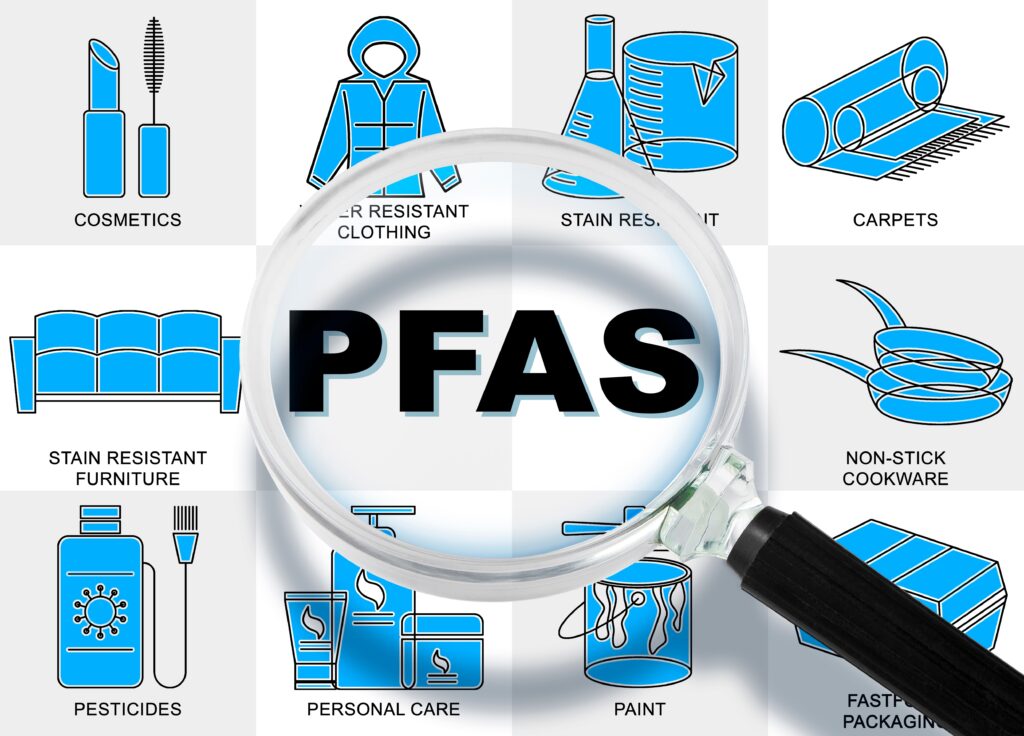Communities across Georgia—especially in Northwest Georgia—are increasingly raising concerns about PFAS chemicals contaminating local water supplies. These harmful “forever chemicals,” often found in industrial and firefighting runoff, persist in the environment and are linked to serious health risks, including cancer, hormone disruption, and weakened immune systems. For families relying on potentially contaminated water, these chemicals represent a threat that can’t be ignored.
If you live in a community affected by PFAS contamination or suspect exposure, it’s critical to understand the steps you can take to protect yourself and hold the responsible parties accountable. Testing your water, consulting with healthcare providers, and exploring your legal options are key to safeguarding your health and future. At Tracey Fox & Walters, our experienced personal injury attorneys are dedicated to standing up for Georgia families impacted by PFAS contamination. Contact us today to discuss your case and learn how we can fight for the compensation and justice you deserve.
What Are PFAS and Why Are They a Concern in Georgia?
Per- and polyfluoroalkyl substances, commonly known as PFAS, are a group of man-made chemicals widely used in industrial applications and consumer products for their heat resistance, durability, and water-repellent qualities. These chemicals can be found in items such as non-stick cookware, stain-resistant carpets, firefighting foam, food packaging, and water-resistant clothing.
While their utility has made them common, their chemical makeup makes them highly resistant to breaking down in the environment. Because they accumulate in soil, water, and the human body, PFAS are known as “forever chemicals.”
For Georgia communities—particularly those in Northwest Georgia where industrial discharges and firefighting foam have been widely used—this contamination is a growing long-term concern.
How PFAS Enter Drinking Water Systems in Georgia
PFAS chemicals can enter drinking water systems through several pathways:
- Industrial discharges from manufacturing facilities
- Use of PFAS-containing firefighting foam at airports, military bases, and training sites
- Runoff and seepage from contaminated soil and landfills
Once PFAS enter groundwater or surface water, they persist for decades, continually exposing Georgia communities to health risks.
Communities in Georgia Affected by PFAS Water Contamination
PFAS contamination is a pressing issue across the state, but Northwest Georgia has been particularly impacted. Areas near industrial hubs, military bases, and airports have reported elevated PFAS levels in water supplies. Families in rural communities relying on wells are especially vulnerable since many private water systems lack treatment safeguards.
What EPA Data and Assessments Reveal About Georgia Water Systems
Environmental Protection Agency (EPA) testing and independent studies have identified PFAS contamination in multiple Georgia water systems. Key findings include:
- Regulatory uncertainty, with local governments seeking clearer enforcement measures.
- Widespread detection near industrial facilities and military installations.
- Groundwater concerns in areas where firefighting foam has been used.
- Treatment gaps in rural communities, which often lack advanced filtration systems.
How to Check if Your Area’s Water Supply is at Risk
Residents can review the Environmental Protection Agency (EPA) maps and local water quality reports to see if PFAS have been detected in their area. Families in Northwest Georgia should strongly consider water testing kits or certified lab testing, especially if using private wells. Installing home filtration systems, such as reverse osmosis, may help reduce risk.
Common Symptoms and Long-Term Health Concerns Linked to PFAS
PFAS exposure has been linked to serious health risks, including:
- Short-term respiratory issues from low-level exposure
- Hormonal imbalances and thyroid dysfunction
- Elevated cholesterol levels and heart risks
- Weakened immune response, making infections harder to fight
- Increased risk of cancers (especially kidney and testicular)
- Developmental delays, learning disabilities, and low birth weight in children
Is Georgia Tap Water Safe from PFAS Contamination?
Some Georgia municipalities have begun testing and filtration efforts, but many areas remain unprotected. Families in Northwest Georgia, especially near industrial and military sites, face higher risks of exposure. Private wells are particularly vulnerable, since they are not regulated by municipal testing standards.
How PFAS Levels Are Regulated in Georgia
The EPA has issued health advisories for certain PFAS, but Georgia does not yet have enforceable state-level standards for mandatory limits. This leaves much of the burden on local municipalities and residents. Stronger regulations are expected as new EPA guidelines take effect, but enforcement may take time.
What the New EPA Guidelines Mean for Georgia Residents
The EPA’s newly proposed PFAS limits are stricter than ever before. For Georgia families, this could mean more water systems being required to test, report, and reduce PFAS contamination. While full adoption will take time, residents should stay informed and proactive about their water safety.
How to Test Your Home’s Tap Water for PFAS Chemicals
- Purchase a PFAS water testing kit or use a certified lab
- Keep detailed results for personal health and possible legal claims
- Use reverse osmosis or activated carbon systems to reduce exposure
What to Do If You’ve Been Exposed to PFAS in Georgia
If you suspect or confirm exposure, take these steps:
- Seek medical evaluations to check for PFAS-related health effects.
- Document health conditions and symptoms with your doctor.
- Test your water supply and retain results.
- Install filtration systems to reduce ongoing exposure.
- Consult with an attorney experienced in PFAS cases to explore compensation options.
Do You Need a PFAS Exposure Attorney in Georgia?
Yes. PFAS lawsuits are complex, and holding corporations accountable requires skilled legal representation. At Tracey Fox & Walters, we help Georgia families investigate exposure sources, build strong claims, and pursue the compensation they deserve.
PFAS Water Contamination Lawsuits and Settlements in Georgia
Georgia communities are joining nationwide lawsuits aimed at holding corporations accountable for PFAS contamination. These lawsuits seek compensation for medical bills, lost wages, property damage, and emotional suffering while pushing for stronger safety standards.
Contact Tracey Fox & Walters About PFAS Exposure in Georgia
PFAS exposure can have serious and lasting effects on the health and well-being of Georgia families. With our extensive experience and commitment to justice, the attorneys at Tracey Fox & Walters are here to help.
Take the first step toward protecting your family’s future—contact us today for a free consultation. Contact Tracey Fox & Walters today for a free consultation and the dedicated legal support you deserve.



